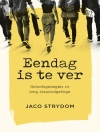The Polish-Lithuanian Commonwealth familiarized itself with Christian Hebraism in the first half of the 16th century. ‘In Search of ’the Genuine Word of God” sketches out the process in three chapters. The first one deals with the development of modern Hebrew studies in Western Europe, the second gives an account of the academic and religious level of Hebrew scholarship in the Commonwealth in the 16th century and at the beginning of the 17th century, and the third is devoted to Polish translations of the Hebrew Bible, which were the most significant consequences of the reception of the West-European Christian Hebraism in the Polish-Lithuanian Commonwealth in Renaissance.
Knowledge of Hebrew would be spread in the Polish-Lithuanian Commonwealth through personal contacts of magnates and church dignitaries with the Western European Hebrew experts, through Jewish converts teaching Semitic languages, through foreign studies at European universities and through books. Polish Christian Hebraism was not creative; local humanists and reformers who communicated with adherents of Judaism contributed but little to domestic Hebrew studies. Only scholarly trends occasioned by different Christian confessions come to our notice. Hebrew studies were undertaken within universities or religious movements. The purpose was practical: to have direct access to the original Hebrew Bible for the sake of theological disputes or to have proper translation tools for rendering the Scripture in Polish.
Over de auteur
Prof. Dr. Siegrid Westphal ist Inhaberin des Lehrstuhls für Geschichte der Frühen Neuzeit an der Universität Osnabrück sowie Direktorin des Forschungszentrums Institut für Kulturgeschichte der Frühen Neuzeit.












